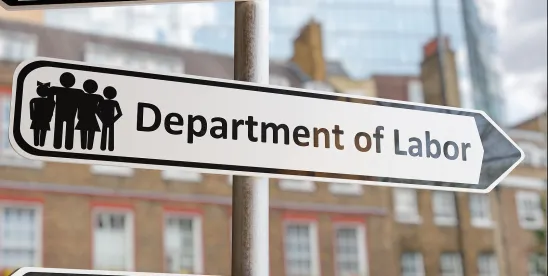On April 3, 2024, the U.S. Department of Labor (DOL) published a final amendment to Prohibited Transaction Class Exemption 84-14. The amendment will become effective June 17, 2024.
Registered investment advisers that manage accounts that are considered “plan assets” under the Employee Retirement Income Security Act of 1974 (ERISA) and that are subject to the ERISA prohibited transaction rules often rely on this Exemption. Without an exemption, the prohibited transaction rules prohibit any transaction between an adviser using “plan assets” and certain related parties. The Exemption allows advisers meeting particular requirements to qualify as a “qualified professional asset manager” (“QPAM”) to engage in certain investment transactions that would otherwise violate the prohibited transaction rules.
The Amendment increases the current QPAM registered investment adviser AUM and Equity thresholds in 2024, 2027, and 2030, from the current $85 million AUM and $1 million shareholders’ equity. For the fiscal year ending December 31, 2024, the thresholds are $101,956,000 AUM and $1,346,000 equity. For the fiscal year ending December 31, 2027, the thresholds are $118,912,000 AUM and $1,694,000 equity. For the fiscal year ending December 31, 2030, the thresholds are $135,868,000 AUM and $2,040,000 equity. Annual adjustments for inflation will be made following December 31, 2030.
The Amendment also clarifies the requirement that the QPAM must not “act as a mere independent approver of transactions.” Rather, the QPAM must have and exercise sole discretion over the investments of plan assets. Specifically, a manager may not be appointed to “uncritically approve transactions, commitments, or investments negotiated, proposed, or approved by the plan sponsor, or other party in interest.”
The Amendment requires advisers qualifying as a QPAM to submit a one-time email notice to the DOL at QPAM@dol.gov, within 90 days of the QPAM’s reliance on the Exemption, providing the legal and operating name(s) of the firm. For a firm that is relying on the Exemption as of the June 17, 2024 effective date, the email must be sent no later than September 15, 2024. If a firm fails to report, there is an additional 90-day period to cure. A firm that qualifies as a QPAM must report to the DOL if there is a change to a legal or operating name for the firm or the QPAM is no longer relying on the exemption. A current list of entities relying on the QPAM Exemption will be listed on the DOL website.



 />i
/>i
